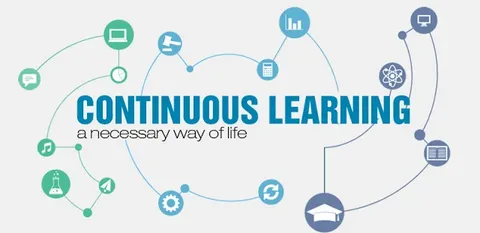Introduction
Continuous learning is essential for staying relevant and advancing in your career. This guide builds on our article about developing a personal brand and provides strategies for ongoing professional development and skill enhancement.
Learning Mindset
Cultivate a growth mindset for continuous learning. This foundation is crucial for career advancement. Embrace challenges, seek feedback, and view failures as learning opportunities.
Professional Development Planning
Create a structured development plan. This approach supports your long-term career growth. Set learning goals, identify resources, and track your progress.
Skill Development Strategies
Implement effective learning methods. This practice aligns with leadership development. Use a combination of formal education, on-the-job learning, and self-directed study.
Networking for Learning
Leverage your network for development. This strategy is essential for building a professional network. Connect with mentors, join professional groups, and participate in knowledge-sharing communities.
Staying Current
Keep up with industry trends and changes. This focus is crucial for maintaining relevance. Follow industry news, attend conferences, and engage in continuous research.
Conclusion
Continuous learning and professional development are essential for career success in today’s rapidly changing workplace. By cultivating a learning mindset, creating a development plan, implementing effective learning strategies, leveraging your network, and staying current with industry trends, you can ensure ongoing growth and maintain your competitive edge.
Frequently Asked Questions
Q: How can I find time for continuous learning while working full-time?
A: Start by identifying small pockets of time in your schedule. Use your commute for listening to podcasts or audiobooks. Dedicate lunch breaks to reading industry articles. Set aside 30 minutes each morning or evening for focused learning. Take advantage of employer-provided training programs. Break down learning goals into manageable chunks. Remember that even small, consistent efforts can lead to significant growth over time.
Q: What are some effective ways to track my professional development progress?
A: Create a learning journal or digital portfolio to document your achievements. Set specific, measurable goals and track your progress toward them. Use apps or spreadsheets to monitor completed courses and certifications. Keep a record of new skills acquired and projects completed. Regularly review and update your development plan. Seek feedback from mentors and supervisors about your progress. Celebrate milestones and achievements along the way.
Q: How can I identify the most valuable learning opportunities for my career?
A: Start by assessing your current skills and identifying gaps in your knowledge. Research industry trends and future skill requirements. Talk to mentors and successful professionals in your field. Review job descriptions for positions you aspire to. Consider both technical skills and soft skills development. Look for learning opportunities that align with your career goals and personal interests. Prioritize skills that will have the most immediate impact on your current role.

